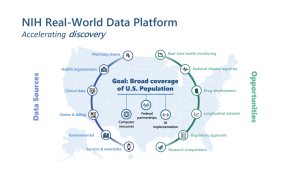Expanding Autism Research and Services: A Dual Priority
Autism research and the expansion of services for autistic individuals are two critical and timely priorities within the autism community. While research seeks to uncover the underlying causes of autism spectrum disorder (ASD), the immediate need lies in providing effective therapies and supportive programs to individuals currently living with ASD. These include behavioral, neurodevelopmental, educational, and vocational services that empower individuals to lead independent and fulfilling lives.
Balancing both priorities is essential. Advancing scientific understanding helps inform better interventions, while improving current services directly impacts quality of life for individuals and families navigating autism today.
Unfortunately, funding for community-based services remains insufficient. Only about 5% of total autism-related funding has historically been directed toward services research—a figure that has remained stagnant over time and lacks diversity in focus areas and populations served. While recent progress includes a growing number of studies on adult populations and implementation science, significantly greater investment is urgently needed.
On the research front, NIH Director Dr. Jay Bhattacharya recently announced the proposal for a national autism research registry. This announcement has sparked both hope and concern. For context, the NIH already maintains a robust set of national registries across various medical diagnoses (e.g., cancer, autoimmune diseases), which provide vital datasets for researchers seeking to better understand these conditions.
This proposed autism registry would aggregate medical data from federal and commercial sources to support large-scale, inclusive research. According to Dr. Bhattacharya, researchers selected for the project would analyze anonymized data through aggregate-level statistics, ensuring individual privacy while maximizing the scope and utility of the data.
As a case in point, researchers in Washington State have launched a computational project analyzing Human Endogenous Retroviruses (HERVs) in the genomes of individuals with level 1 autism, profound autism, and neurotypical controls. Given that most genomic datasets focus on individuals with milder forms of autism, this team faces the unique challenge of verifying data from those with profound autism—a group severely underrepresented in scientific studies.
HERVs, which account for nearly 8% of the human genome, have been implicated in neurological diseases like multiple sclerosis and ALS. If a link between HERVs and autism is confirmed, this could open new therapeutic pathways. A national registry would be instrumental in improving access to accurate data for such studies and accelerating discoveries that benefit profoundly autistic individuals.
At Washington Autism Alliance (WAA), we advocate for both innovation and equity. We support efforts that help autistic individuals thrive in their communities. While WAA does not endorse specific studies, we aim to share critical information with our community and promote research that is inclusive of all levels of autism, particularly those who often go unheard and underserved.


